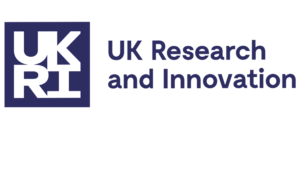In our first UKRI-sponsored Ask the Expert virtual panel event, the SMF brought together three different experts to discuss the future of scientific advice in policymaking.
We questioned the panel on the complexities surrounding the phrase “Guided by the science” and what the future of scientific advice should be after the pandemic. Are scientific advisory structures fit for purpose? Who should we be taking advice from? And should there have been such an emphasis on scientific integrity in relation to coronavirus policy?
Panellists:
- Rt Hon Greg Clark MP, Chair of the Science and Technology Committee
- Dr Adam Cooper, Lecturer in Social Science and Public Policy, UCL
- Tracey Brown OBE, Director, Sense about Science
- James Kirkup, Director, Social Market Foundation (Chair)
Rt Hon Greg Clark MP
Firstly, Greg Clark noted the “disputatious” and “exploratory” nature of science and how the changing of scientific advice during the pandemic is intrinsic to the nature of scientific discovery. The former Business Secretary expressed his faith in the British public to understand how the traditional “political norms” do not apply to the uncertainty of science during these times.
However, he acknowledged the need for “reflection” on why Britain’s “world-leading” science did not match up to a “world-beating” handling of the pandemic.
Outlining future discussions that need to be had, Greg Clark highlighted two points of conversation:
- Is scientific advice to government diverse enough: the Science Committee Chair suggested there may have not been the “right range” of scientists looking into the indirect impacts of lockdown on health and wellbeing;
- If being so tightly bound to the idea of being ‘guided by the science’ worked as a “constraint”, in the sense that policy making was delayed behind the “rigour” of science and relying on finalised evidence.
Dr Adam Cooper
Dr Adam Cooper is an applied interdisciplinary social scientist, he is a lecturer in Social Science and Public Policy at UCL’s STEaPP department and he previously worked in the Civil Service.
When questioned about the structures of scientific advice, Dr Cooper noted a “disfunction” in how SAGE operates. He described the boundaries of SAGE as “fuzzy”, since the advisory group being neither an official government body nor entirely independent; that is “problematic” from the perspective of “accountability”, Cooper argued.
Within SAGE, Dr Cooper stressed the need for a greater variety in advisors. Firstly, he called for an “interdisciplinary” approach to scientific advice; with social scientists beyond behavioural scientists being included in “conversations across disciplines”, such as experts from “sociology” or “human geography”. Secondly, Dr Cooper suggested a “transdisciplinary” approach would give valuable insight into alternative knowledge sets, such as from “community experts” who offer understandings of populations which go beyond the traditional boundaries of scientific advice.
In navigating which advisors are missing from discussions, Dr Cooper suggested a method of intervention that “restructures” large problems into a “series of sub-problems”, and then looks at approaching the appropriate disciplines. This suggests there is a case for needing to work backwards from the root of the issue – the best science is the science that works for the “here and now”, Dr Cooper later argued during the Q&A discussion.
In response to Greg Clark’s question of how much being “guided by the science” has been a “constraint”, Dr Cooper queried how the Government responded to wider scientific advice from the World Health Organisation (WHO). The UK was constrained by insisting on following its own scientific advice and “defining” of the problem, Dr Adam Cooper suggested, rather than following the advice from WHO from the outset.
Tracey Brown OBE
Tracey Brown OBE is the Director of Sense about Science and has advocated for the “independence” and “transparency” of scientific advisory committees.
On the structures of scientific advice, she noted the importance of departmental scientific advisors being held “accountable through Parliament”. The recent high-profile case of Home Affairs Committee Chair Yvette Cooper questioning the Home Secretary on how quarantine measures were decided is an example of Parliament scrutinising how “decisions are made” in relation to scientific advice, Tracy Brown argued. She also noted that Parliament acts as an early warning system used by MPs in order to flag what is going on in constituencies in real time.
In response to the question of “constraint” by Greg Clark, Sense about Science’s Director suggested policies were “not constrained by the rigours of science”, instead citing that “more than 200 policies had been made in a very short window” – suggesting the question to be asked is not one about the thoroughness of scientific advice slowing down policy.
Instead, the role of “leadership” and how being “guided by the science” can be a mechanism for removing transparency and accountability. Tracey Brown noted there was alternatively a “constraint within government” in “being able to implement scientific advice” due to “broken” communication structures between government and the NHS. Britain’s once highly successful STI track and trace system was cited as an example of our previous capability to implement scientific advice to public policy. Essential communication reform must take place between scientific advice and policy structures in the future to improve the “systems of implementation”, Tracey Brown suggested.
All of the panel agreed there should be greater transparency from scientific advisory structures and a wider scope of advice considered within these structures.
The SMF’s Ask the Expert event series is kindly supported by UK Research and Innovation. It brings the best in academic research to bear on policymaking in Westminster. Keep up to date with the series on Twitter via #SMFask

